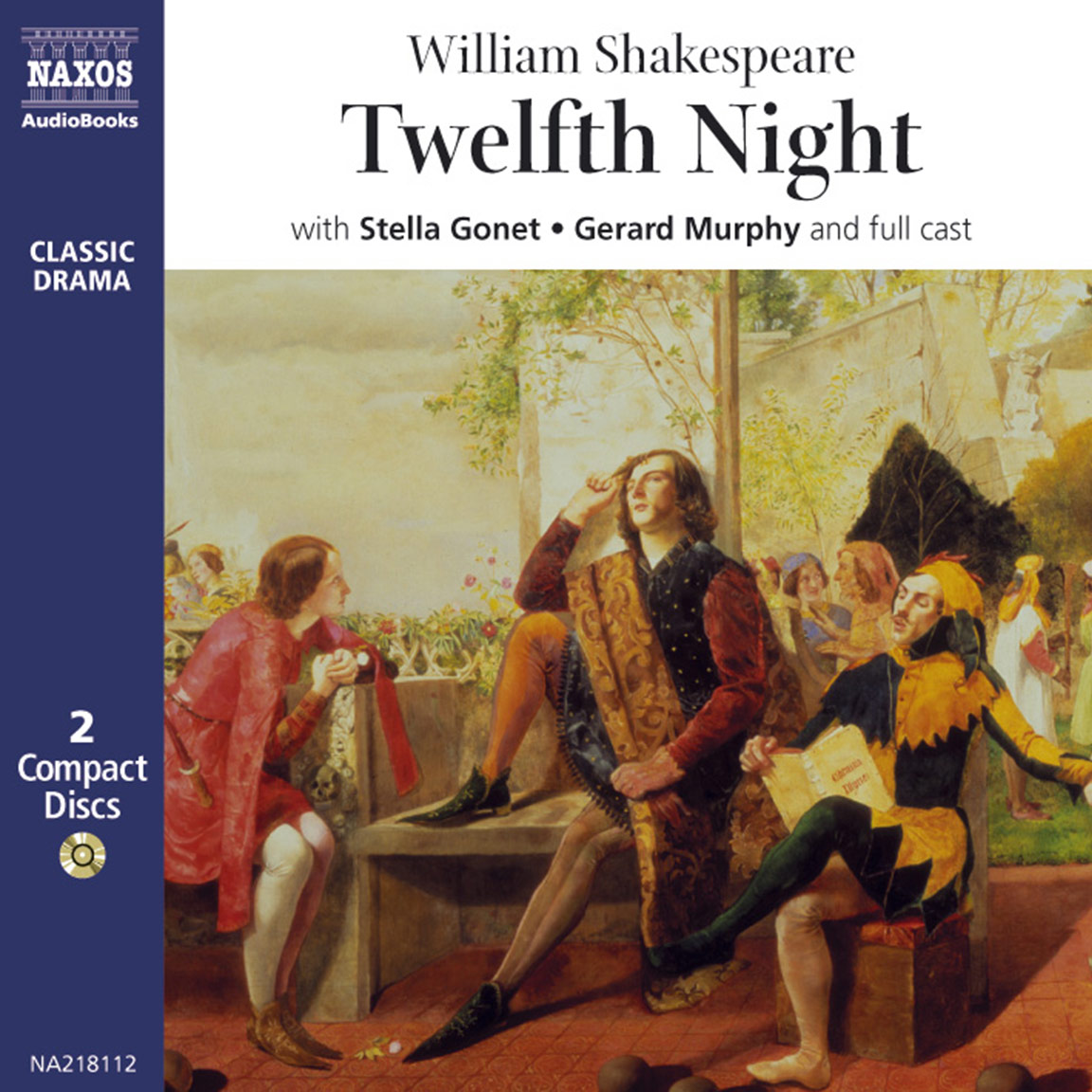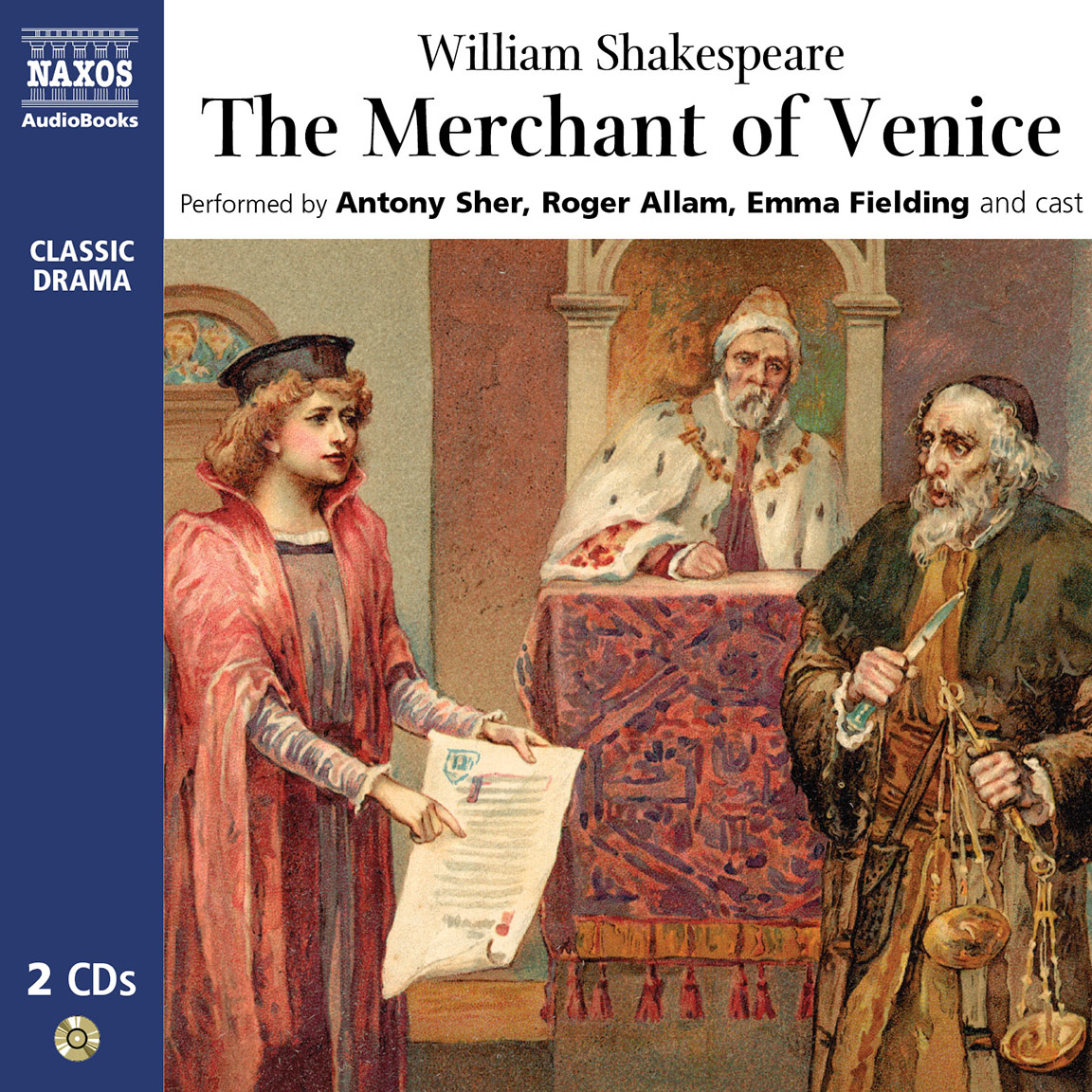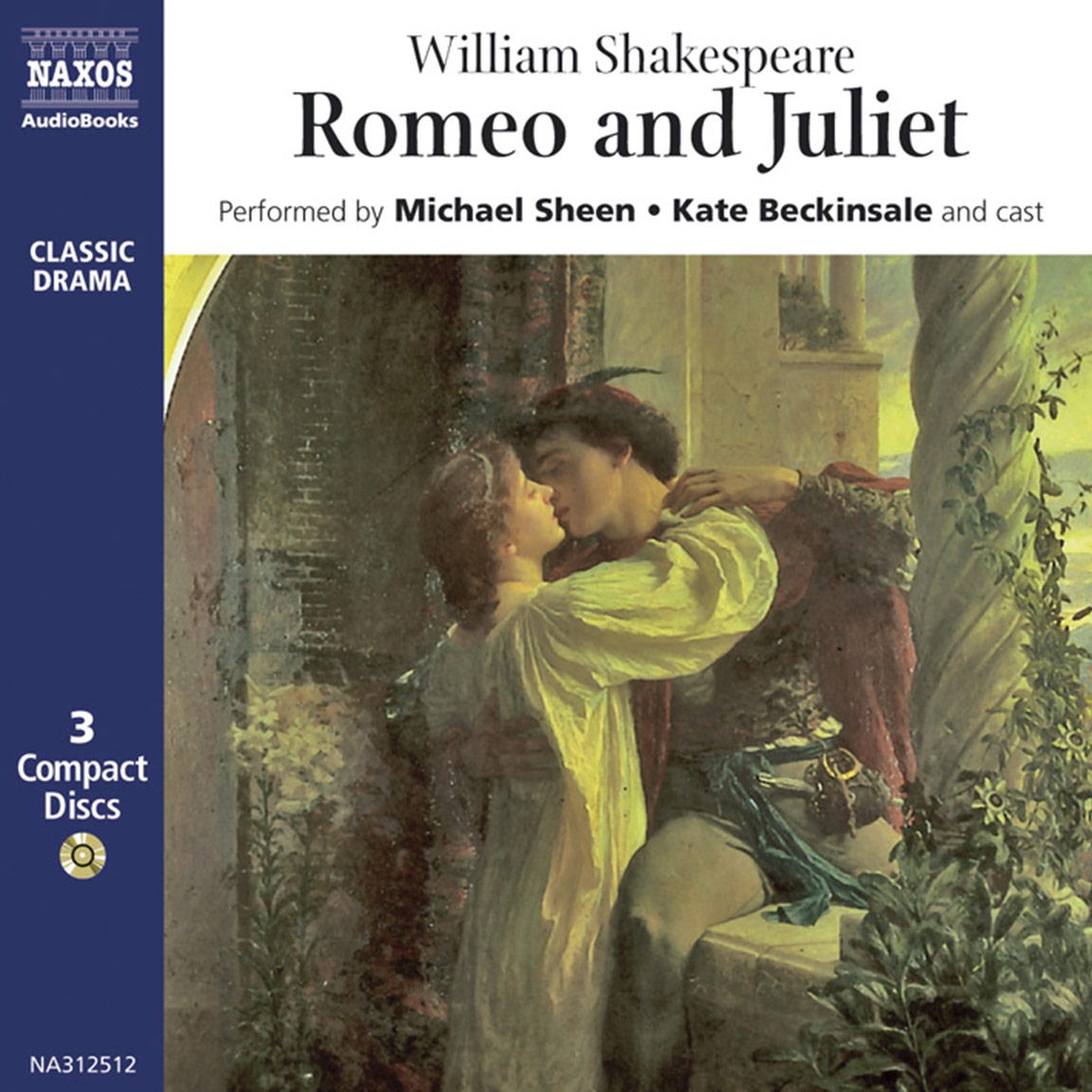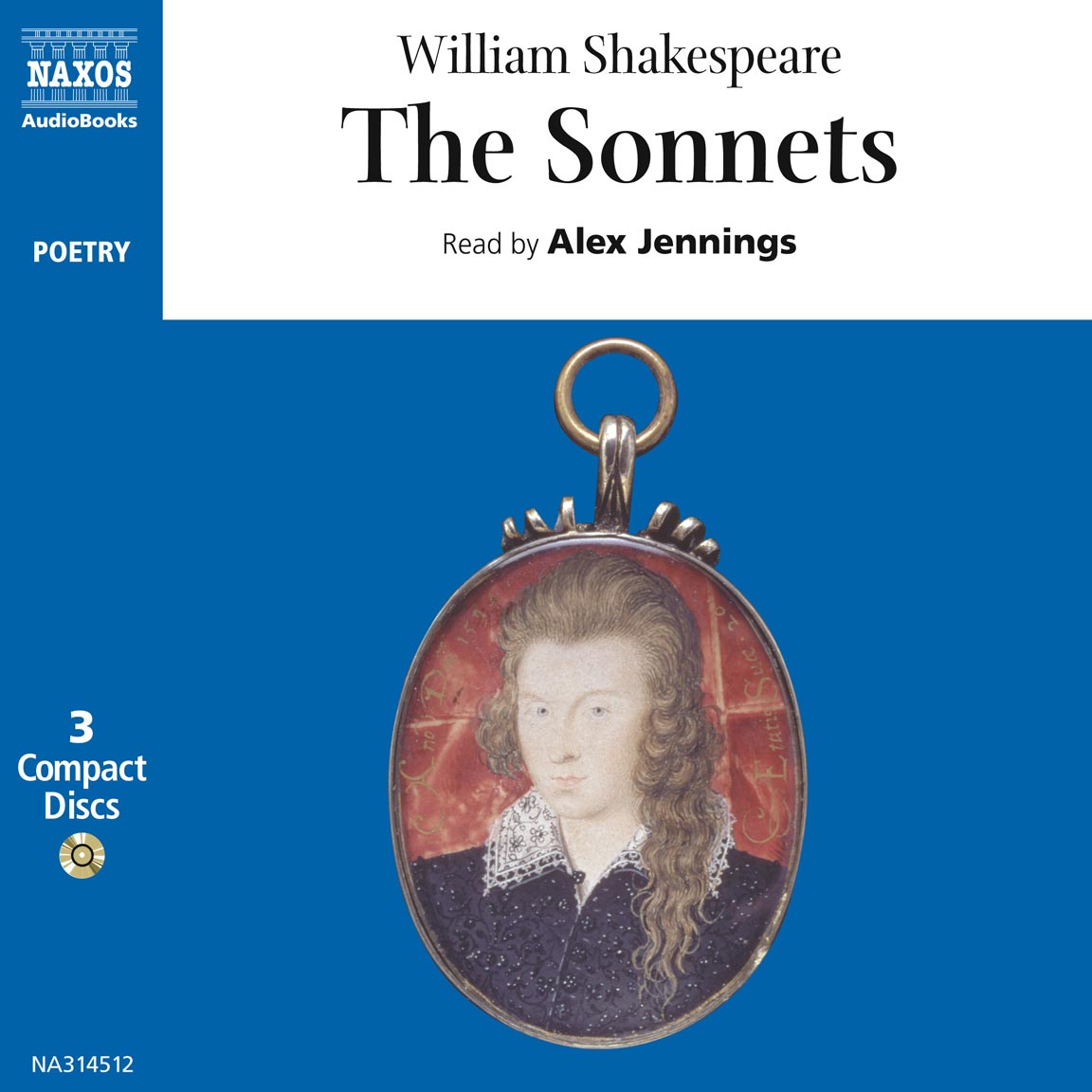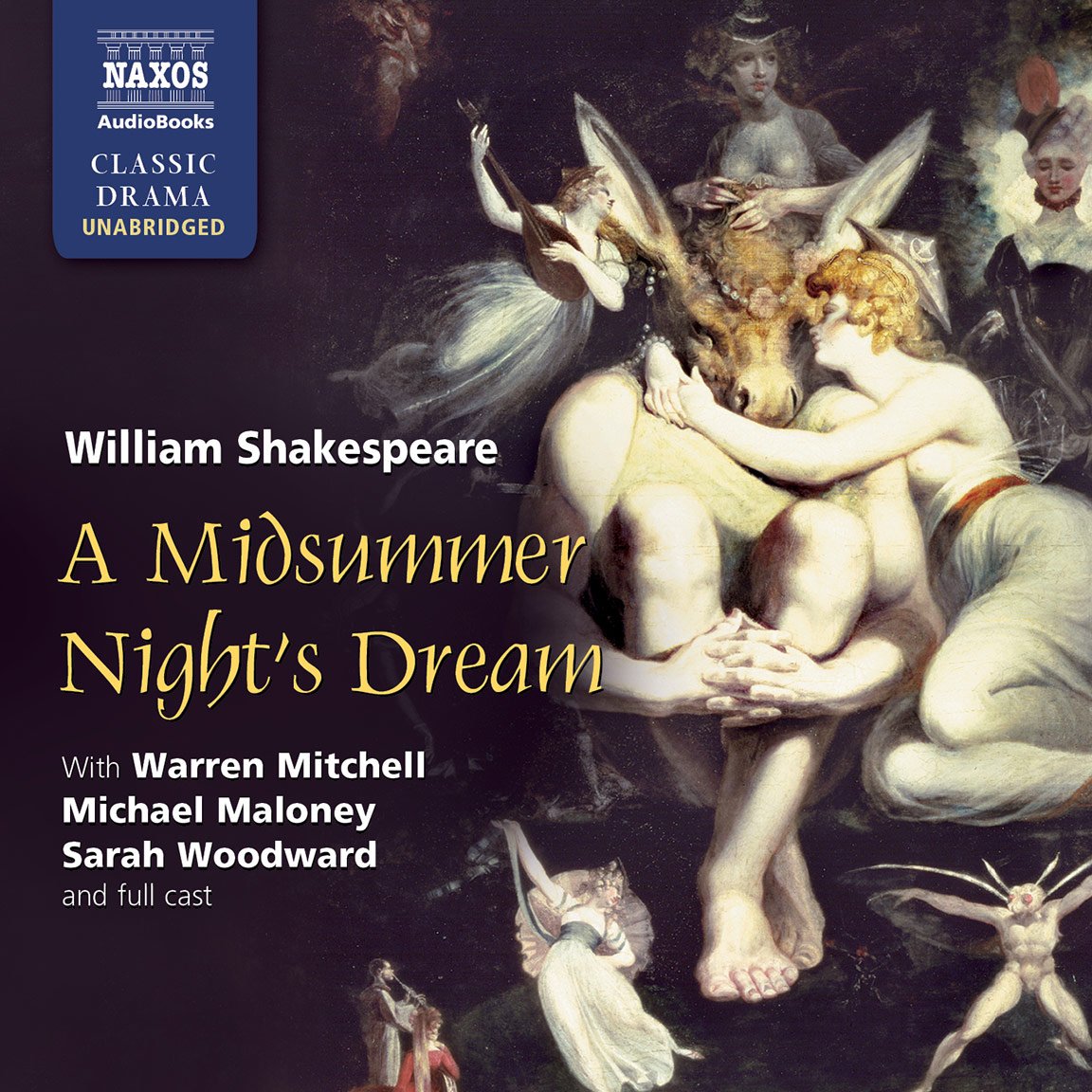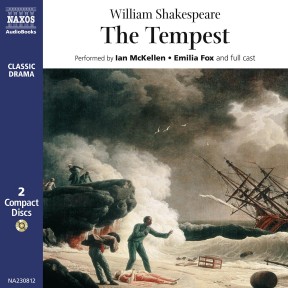
Audio Sample
William Shakespeare
The Tempest
Performed by Sir Ian McKellen, Roger Hammond, John McAndrew, Neville Jason, Emilia Fox, Benedict Cumberbatch & David Burke
unabridged
Sir Ian McKellen, fresh from his performance as Gandalf in Lord of the Rings is Prospero, and heads a strong cast in Shakespeare’s last great play. The wronged duke raises a tempest to shipwreck his old opponents on his island so that he can ensure justice is done. With Emilia Fox as Miranda, Scott Handy in the pivotal role of the sprite Ariel and Ben Owukwe as Caliban, this new production directed by John Tydeman, balances the magic and the earthiness with music playing a key role.
-
2 CDs
Running Time: 2 h 08 m
More product details
ISBN: 978-962-634-308-1 Digital ISBN: 978-962-954-694-6 Cat. no.: NA230812 Download size: 60 MB Produced by: Nicolas Soames Directed by: John Tydeman Edited by: Mike Etherden BISAC: DRA010000 Released: August 2004 -
Listen to this title at Audible.com↗Listen to this title at the Naxos Spoken Word Library↗
Due to copyright, this title is not currently available in your region.
You May Also Enjoy
Cast
- Roger Hammond
- Alonso, King of Naples
- John McAndrew
- Sebastian, his brother
- Ian McKellen
- Prospero, Duke of Milan
- Neville Jason
- Antonio, his brother, the usurping Duke of Milan
- Emilia Fox
- Miranda, daughter of Prospero
- Benedict Cumberbatch
- Ferdinand, son to the King of Naples
- David Burke
- Gonzalo, an honest old councillor
- Simon Treves
- Adrian, a lord
- Tim Bentinck
- Francisco, a lord
- Ben Onwukwe
- Caliban, a savage and deformed slave
- Ian Talbot
- Trinculo, a jester
- John Hodgkinson
- Stephano, a drunken butler
- Simon Treves
- Master
- Tim Bentinck
- Boatswain
- Scott Handy
- Ariel, an airy spirit
- Elaine Claxton
- Juno
- Laura Paton
- Ceres
Booklet Notes
SYNOPSIS
Act 1 Scene 1: Thunder. Lightning. A tempest at sea drives a ship carrying Alonso, King of Naples, Ferdinand, his son, and Antonio, Duke of Milan, plus sundry courtiers travelling from Tunis after the marriage of the King’s daughter, onto rocks and is wrecked with the loss, it is assumed, of all aboard.
Act 1 Scene 2: On a nearby island, Prospero, the usurped Duke of Milan, and his daughter, Miranda, watch the storm which he confesses to having caused by magic with the help of his servant spirit, Ariel, whom he has released from imprisonment by Sycorax, the former ruler of the island, and mother of Caliban, a misshapen monster who is also in his service. Prospero abates the tempest and tells his daughter their past history, how his brother ousted him with the aid of the King of Naples and how he and his baby daughter were put to sea in a small boat, loaded with his magic books placed there by a kindly courtier, Gonzalo, and how they arrived on the island and ‘colonised’ it. Ariel is despatched, invisible, to find Ferdinand, the King’s son; Caliban is called and set to work; and Miranda is put to sleep. When she awakes she sees Ferdinand, whom Ariel has led to her by song, and they instantly fall in love. Prospero (who has planned all this) responds sternly and puts Ferdinand to hard labour.
Act 2 Scene 1: Elsewhere on the island the good Gonzalo tries to cheer up King Alonso who is grieving for Ferdinand’s supposed death. Ariel puts the two of them to sleep during which Antonio persuades the King’s brother, Sebastian, to kill Alonso and grab the crown. At the point of murder Ariel awakens the King and Gonzalo, who become suspicious upon seeing drawn swords, and the four men go off in search of survivors of the wreck.
Act 2 Scene 2: Two survivors are Trinculo, a jester, and Stephano, a butler, who is drunk on salvaged wine. Caliban, seeing Trinculo, thinks him to be a spirit sent to haunt him and hides under a gaberdine cloak. Trinculo, frightened by a storm, hides under the same cloak. Stephano, inebriated, sees what he takes to be a monster of the island. He gives Caliban a drink and he agrees to serve the two men if they give him more drink and he’ll then be free of Prospero’s masterdom.
Act 3 Scene 1: Ferdinand appears carrying heavy logs and Miranda expresses her pity and love for him. Overheard by an unseen and approving Prospero, they vow to marry.
Act 3 Scene 2: Encouraged by an invisible Ariel, Trinculo, Stephano and Caliban quarrel in a comic fashion and they agree to murder Prospero and set Stephano up as King of the island with Miranda as his consort and Caliban and Trinculo as viceroys. Ariel, still unseen, leads them off to a catch sung to pipe and tabor.
Act 3 Scene 3: Alonso and the hungry courtiers behold a banquet laid out for them by spirits. They are about to eat when Ariel, as a harpy, makes the banquet disappear and confronts them with their crimes and sins. Full of guilt and remorse and believing the death of his son to be a judgement upon him, Alonso goes to find Ferdinand’s corpse and to die beside him. Gonzalo follows him, with the half-crazed Sebastian and Antonio, to prevent self- harm.
Act 4 Scene 3: Prospero confesses that Ferdinand’s servitude was to test his mettle and consents to his marriage with his daughter. In celebration of the engagement Prospero’s spirits perform a masque, but during a dance of nymphs and rustic reapers Prospero remembers Caliban’s plot against him and abruptly ends the magical proceedings. Ariel tempts the three drunken would-be assassins on with glittering frippery hanging on a line. Then he and Prospero chase them away with spirits disguised as hunting-hounds. Prospero muses that all his enemies are now at his mercy.
Act 5 Scene 1: Arrayed in his magic robes, Prospero hears of the afflictions Ariel has wrought on his enemies and shows some compassion for them and, since they are penitent, he will not seek vengeance on them. In a trance Alonso and the others are led in by Ariel. Prospero promises to renounce his magic powers and disrobes as a magus to reveal himself to the surprised King and courtiers as the rightful Duke of Milan and offers forgiveness and reconciliation. Ferdinand is restored to his father and Miranda introduced to him. Caliban admits his foolishness in being deceived by the drunken Stephano and Trinculo. The Master and Boatswain appear to declare that the ship is miraculously intact, and Ariel will be freed once he has provided a wind which will enable the sailing-ship to catch up with the rest of Alonso’s fleet. All leave for Italy and en route Prospero will tell the whole story. Caliban is left alone on the island.
In an Epilogue Prospero, as an actor, asks for the indulgence and the liberating applause of the audience.
NOTES
When I was writing the synopsis of The Tempest for these notes it was enforcedly borne in upon me that the play, unlike all of Shakespeare’s other dramatic works, doesn’t really have a plot. It tells a story, it has events, it even has plots within it – Antonio and Sebastian plot to kill King Alonso and steal a brother’s crown; Caliban, Trinculo and Stephano plot to kill Prospero, establish Stephano as King of the island, observed that “Shakespeare finally with Miranda as his consort and the jester and the bully-monster as viceroys. Magic overcomes motive and has mastery over character.
It has about it the qualities of a poem, a ‘sea-poem’ some have called it
It is magic which defines events, from the raising of the storm in the first act to the reconciliations of the last act and the promised marriage of Ferdinand and Miranda and the restoration of his Dukedom to Prospero. He tells us in narrative, after the dramatic and naturalistic-seeming shipwreck, the story of all that has happened in the past which really is the main action and the dramatic plot. From the moment we meet Prospero with Miranda in Act 1 Scene 2 he is in control of the present and we know that he can forsee the future after he has broken his staff (wand), buried his books and abandoned the practice of magic. Because of Prospero’s control over events and people there is no real danger, no dramatic conflict, just a progression of controlled happenings leading to a preordained conclusion.
Rarely for Elizabethan/Jacobean drama The Tempest observes the three classical Unities of Time (the events of the play occur within a limit of three to four hours); Place (the island); and Action (things happen continuously). One has some sympathy with the French critic who succeeded in preserving the Unity of Time only by eliminating action altogether”.
The Tempest, which is the last play Shakespeare wrote as sole author (Henry VIII and The Two Noble Kinsmen were collaborations with John Fletcher), differs from the rest of his dramatic work. To anyone familiar with the canon it just ‘feels’ different. It has a different texture and symmetry. It aspires to the discipline of music and it is no accident that it has inspired numerous musicians – Beethoven, Purcell, Berlioz, Tippett and Tchaikovsky. At the time of his death Mozart was contemplating making it into an opera.
It has about it the qualities of a poem, a ‘sea-poem’ some have called it. It has inspired numerous other works of art – W.H. Auden’s The Sea and the Mirror, Milton’s Comus, Shelley’s Ariel to Miranda, Browning’s Caliban upon Setebos, Marina Warner’s novel Indigo. It has inspired films by David Jarman and Peter Greenaway – even the science-fiction film Forbidden Planet. Dryden and Davenant rewrote the original play, introducing new characters and a changed ending, and called their work The Enchanted Isle. It was in this form that The Tempest was played for over 150 years into the 19th century – and even afterwards many liberties were taken with the text.
That text was first published in the Folio edition of 1623, seven years after Shakespeare’s death, and appeared as the first play in the volume. There were no problematic Quarto editions or pirate editions and we can be assured that the play comes down to us much as Shakespeare intended. Whether he actually meant the play to be taken as a kind of personal statement, as a sort of farewell to the theatre by the greatest poet–dramatist of the age (and of all time – but he wasn’t to know that!) is a moot point. Such was taken to be the case by sentimentalists for several centuries and there may well have been some such stirring in the creative subconscious of a successful man of the theatre who has made his money and wishes to retire to the country from the hurly-burly of London. I like to think so and can easily read such an intention into the script.
One fact is certain – the play is about a magus, a practitioner of magic, who says farewell to his Art. Shakespeare was certainly such a one.
The play is unlike any other of Shakespeare’s insofar as the story is concerned. It is a tale entirely of his own devising. All his other plays were adaptations of other people’s work, be they histories, romances, comedies or tragedies. He was to the theatre of his day what Andrew Davis is to television of today – a dramatiser. But The Tempest is special. It is original.
Of course there are references to the works of others – Ovid’s Metamorphosis in the 1567 Arthur Golding translation (which he dipped into for many of his works), Virgil’s Aeneid and John Florio’s translation of Montaigne’s Essays. Most interestingly and uniquely, the trigger for the play was an actual incident that occurred in 1609, accounts of which were published in 1610. A ship, the Sea-Venturer, under Sir William Gates, one of a small flotilla taking would- be colonists to the brave New World, was wrecked in the Bermudas and all aboard were considered lost. Then, months later, passengers and crew miraculously (it seemed) turned up on the coast of Virginia unscathed. This dates the writing of the play as being 1610/1611, for it was performed at court before James I on 1st November 1611 and later as part of the celebrations for the marriage of his daughter Princess Elizabeth in 1613.
The fact that it was always performed indoors affected the nature of the play’s form and structure. The masque, with much music and elaborate scenery, was the Jacobean fashion and The Tempest conformed to this fashion, which was more restrictive than the boundless space offered by the Elizabethan theatre in playhouses such as The Globe or The Rose.
This was also a period of much new colonisation, particularly in the Americas, and a considerable amount of debate on the subject was available in print. There is no doubt that someone such as Shakespeare was aware of the discussions and made reference to them in this play. Some have even suggested that the name ‘Caliban’ is an anagram of ‘cannibal’.
Whilst The Tempest may be short on plot, in theme it follows the preoccupations of Shakespeare’s last romance plays – Pericles, Cymbeline, The Winter’s Tale. Vengeance turns to forgiveness, servitude to freedom, peace and reconciliation are all. The message is very much in line with Christian philosophy and teaching and all are given their freedom, even Prospero who frees himself.
But what of the actor trapped within his role? In the medium of sound alone he and the writer have fired the listener’s imagination, created visions within ‘the kingdom of the mind’, and the actors too, those spirits, need setting free. That is the request made by Shakespeare in the Epilogue when the ‘insubstantial pageant’ has faded. Your indulgent approbation as audience creates its own form of liberation and whilst we may not be able to actually hear your response – we hope we will, somehow, sense it.
Notes by John Tydeman
